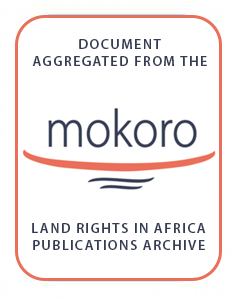Stacked law : land, property and conflict in Honduras
Property conflicts have an enormous impact on relations between the members of farm households and their families. Given the long duration, frequency and intensity of these conflicts an investigation of how they arise and how they affect the daily lives of, and relationships between, landholders is certainly warranted. Conflicts over land visibly manifest themselves in destroyed fences, stolen crops, poisoned dogs, horses that are set free, bloody machetazos, hails of stones between children and murder.









